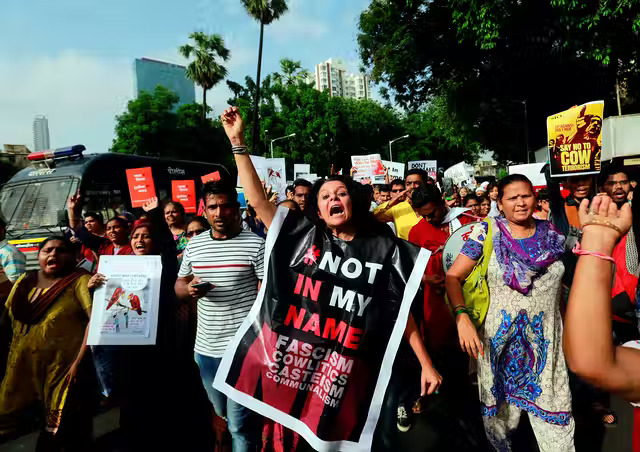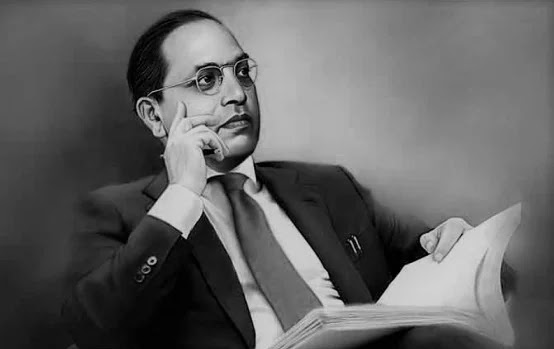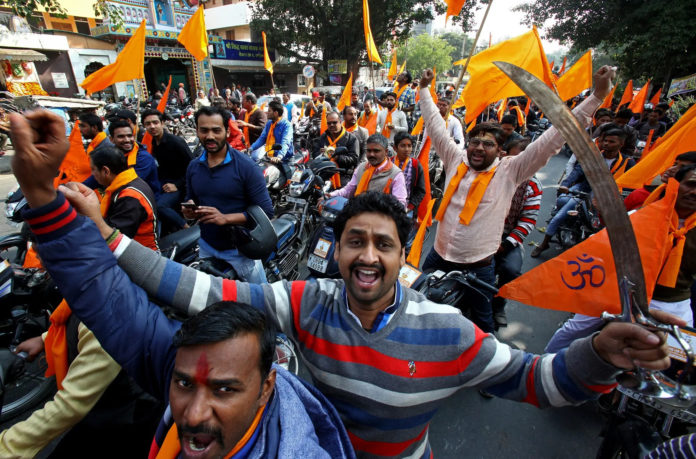India, as a state, presents a stimulating case of proliferating extremism. Over the centuries ‘Greater India’ has been shrinking in size as more and more ethno-sectarian minorities chose to create separate political entities in order to escape the strait jackets imposed by Hindu extremism. The post-independence era touted as India’s democratic order could not grow beyond the tyranny of majoritarian rule. A number of struggles varying from internal autonomy to outright independence are a “political normal” for contemporary India. Recent cases of extremism in India are not really a new phenomenon, instead the country’s history is full of cases where minorities had to face violence and bear the brunt of exclusionism in one way or the other.
Institutional behaviour is also worrisome as there is an extremist mindset in the judiciary, security forces and parliament. For example, in case of Babri Mosque, the Indian superior judiciary remained under pressure of mobs, and law enforcement agencies also did not take action while the mosque was being burnt and demolished, images captured security personnel responsible for protecting the mosque structures gleefully participating in the demolition. And years later the Indian Supreme Court distributed the mosque site amongst communities, meeting the Hindu demand first; it shamefully recorded the reason for this injustice as going by “public aspirations”. The same reason was recorded while sentencing Afzal Guru to death.

Prime Minister Narendra Modi’s tenure has set the exclusionism in full display. The hatred against Muslims has specially escalated in the prevalent Hindutva mindset and the situation is expected to get even worse due to forthcoming Indian elections, because hatred against minorities and exclusionist rhetoric sells well amongst the masses especially in rural India. Indian is promoting partisanship in the name of nationalism and keeps on fueling exclusionism by oppressing its minorities. Politicians and extremists depended on each other in India for their reciprocal sustenance. Politics has been criminalised and crime has been politicised to the extent that the rights of minorities are no longer a priority.
Under the façade of secularism, Hindutva has taken firm roots and is a bipartisan phenomenon. Even though out of the two alternatively ruling alliances, one may own it with heightened symbolism, the other one also essentially embraces its spirit and core practices, while maintaining a denial mode.
While there may be numerous causative factors and contributing conditions for the in vogue exclusionism practiced in India, the main factor for its sustenance resides in the well baptised caste system in Hindu mythology, where lowest caste persons are considered unworthy of touching “Shudras”. Hence, every Hindu is expected to take his assigned place by birth, as God given, and there is no inter-cast vertical movement. Hence there is an inbuilt instinct to extend this intra Hinduism doctrine of exclusiveness to other religions as well assigning them with the derogatory title of “Maleesh” unclean. Another important factor is that the Hindus have not been able to accept the reality that they were ruled by Muslims for over 900 years. As a consequence of this inherent complex, they are now attempting to distort or skip the important parts of history which they are not able to digest. Various places have been renamed to suit the Hindutva narrative. The creation of Pakistan is yet another contributing factor, even prominent Muslim’s personalities in India are often asked by the extremists to “go back” to Pakistan despite their neutral background. Hindus in neighbouring countries are been attracted back to India through an incentive package under the banner of “Home Coming”.

That is why despite continuous loss to chunks of territories on this count, there is no flexibility in the stone-etched mindset. Interfaith marriages are considered as “Love Jihad”, and cow vigilante is an evolving phenomenon despite the fact that India is the world’s largest exporter of beef; Pakistani artists are banned to perform in India, so on and so forth.
By composition, India consists of a pluralist mass of people, however, by practice, or say, by default it is perpetually self-gravitating toward exclusive socio-economic formulations of the “Hindu way of life”, leading to absence of a level playing field for minorities, culminating into denial of due political space for non-Hindus, with the exception of showcasing occasional occupation of high profile posts by non-Hindus. These ground realities throw up a whole range of paradoxes. Representation of minorities at executive level jobs and at parliament is much below par with demographic realities.
An accomplished academician Dr. Junaid Ahmad has exposed the real face of India in his recently launched book “India an Apartheid State”. “India has emerged as an apartheid state totally dominated by the Hindu fundamentalists. India claims itself to be a secular country but practically it is a Hindu state with a caste system which promotes inequality and apartheid. There have been thousands of riots in India since 1947. Hindus have been committing atrocities against Dalits, Muslims, Christians and Sikhs in the bloody riots spread over decades. The ongoing insurgencies in numerous states of India are likely to eventually implode the country from within”.

India’s secularism is a hoax and its democracy a deceptive mask. India is a very communalized, classified and stratified society that has adopted an approach of subversion towards its neighbours. India devised a plan to dismember Pakistan in 1971 and it also interferes the in internal matters of all of its neighbours. Hindutva, as a political movement is an effort to reshape India. “India is stratified and element of apartheid is a cultural fault line”, even though its constitution protects rights of minorities. India’s claims of a secular state do not match with actually practiced norms vis-à-vis the minorities. As a matter of routine, Hindus mistreat minorities. B R Ambedkar, author of India’s constitution said, “If Hindu Raj does become a fact, it will, no doubt be the greatest calamity for this country.
No matter what the Hindus say, Hinduism is a menace to liberty, equality and fraternity. It is incompatible with democracy. India’s first Prime Minister Jawaharlal Nehru said, “the ideology of Hindu Dharma is completely out of tune with the present times and if it took root in India, it would smash the country to pieces.” Former Prime Minister Dr. Manmohan had stated, “Dalits have faced a unique discrimination in our society that is fundamentally different from the problems of minority groups in general. The only parallel to the practice of untouchability was apartheid in South Africa. Untouchability is not just a social discrimination. It is a blot on humanity.”
Statements by senior leaders of the ruling Bharatiya Janata Party (BJP) amply show that there was no hope for minorities, at least in the near future. Even Congress, which once used to speak in favour of minorities, has adopted the ideology of soft Hindu because otherwise it will be depleted in elections.
Indian occupied Kashmir has persistently been repressed for over 70 years. The Indian army is not doing the duty of State instead it is fulfilling the duty of religion in Kashmir. So, the soldiers believe that they can do anything to suppress the voices of freedom. Hatred against the Muslims has specially escalated in the prevalent Hindutva mindset and the situation is expected to get even worse.
While Narendra Modi was contesting to become the chief minister of Gujarat, he used posters on which his (Modi) and General Pervez Musharraf’s pictures were printed mentioning that a vote against Modi would be in favour of Musharraf. During last general elections, Modi again used the same language saying the vote against him would be a vote in favour of Pakistan and terrorism. Ideally, Rashtriya Swayamsevak Sangh (RSS) should play a role in uniting peoples because it believed in Akhand Bharat (undivided India). But RSS believes that Muslims cannot be allowed to live in India.




